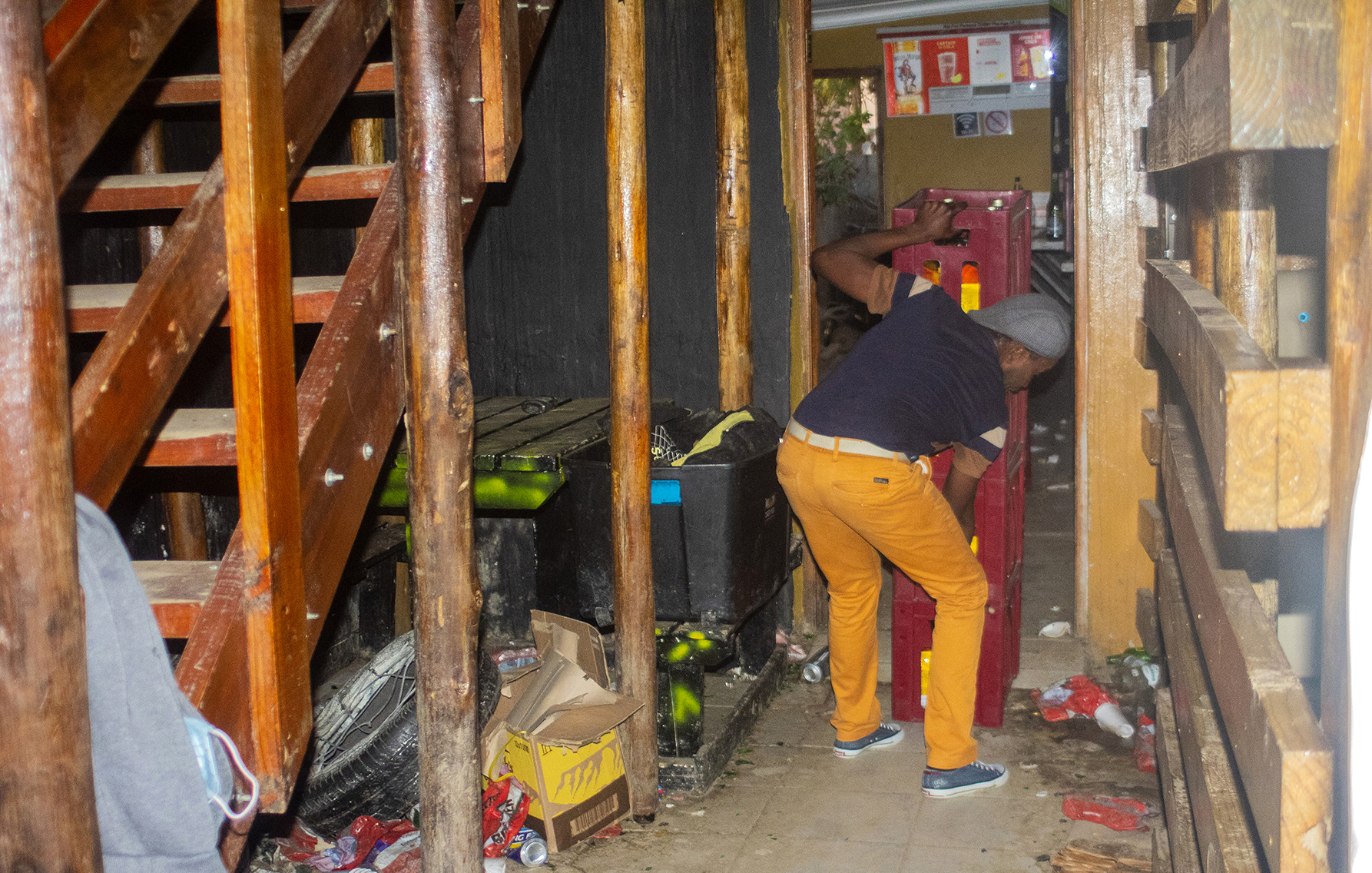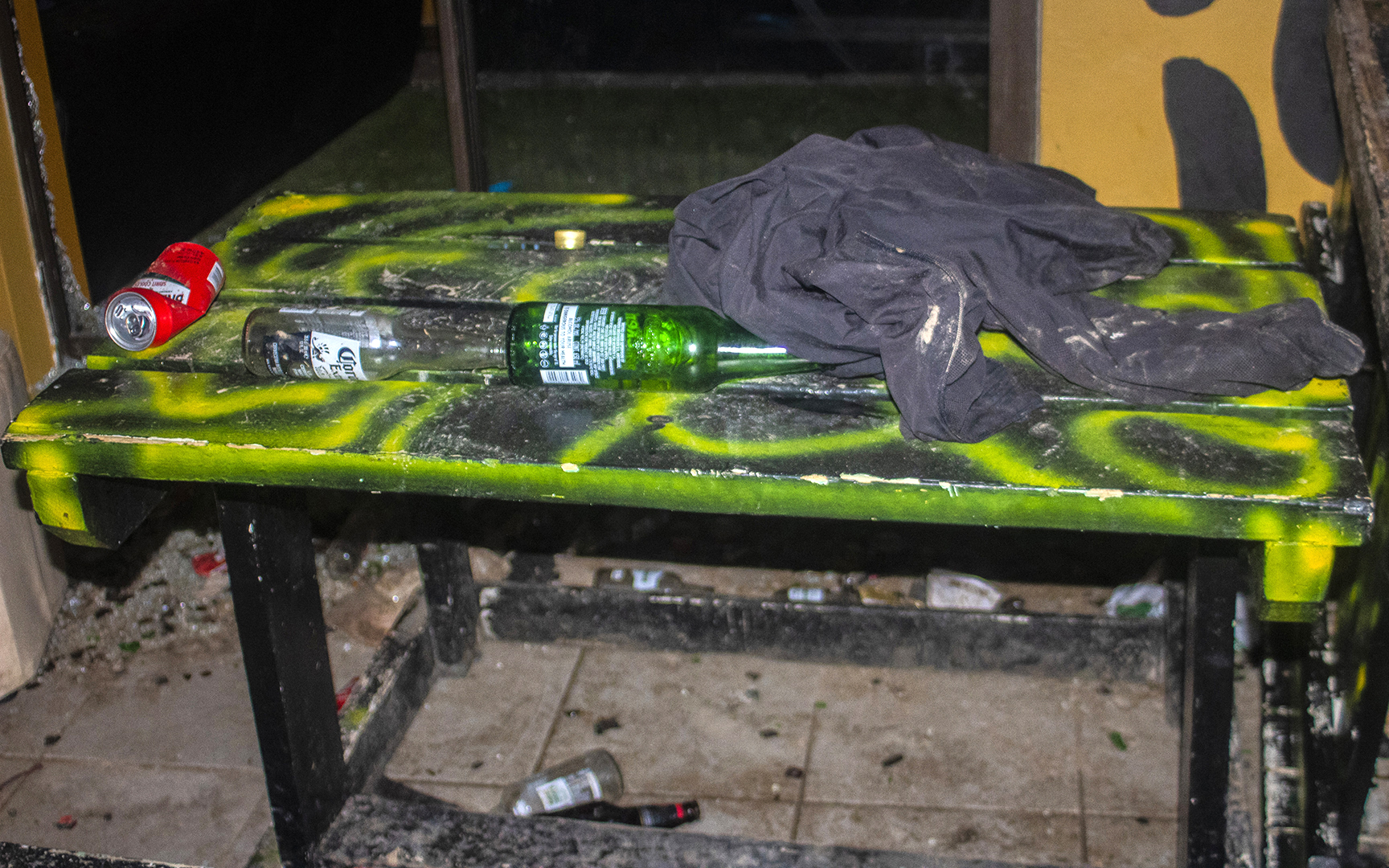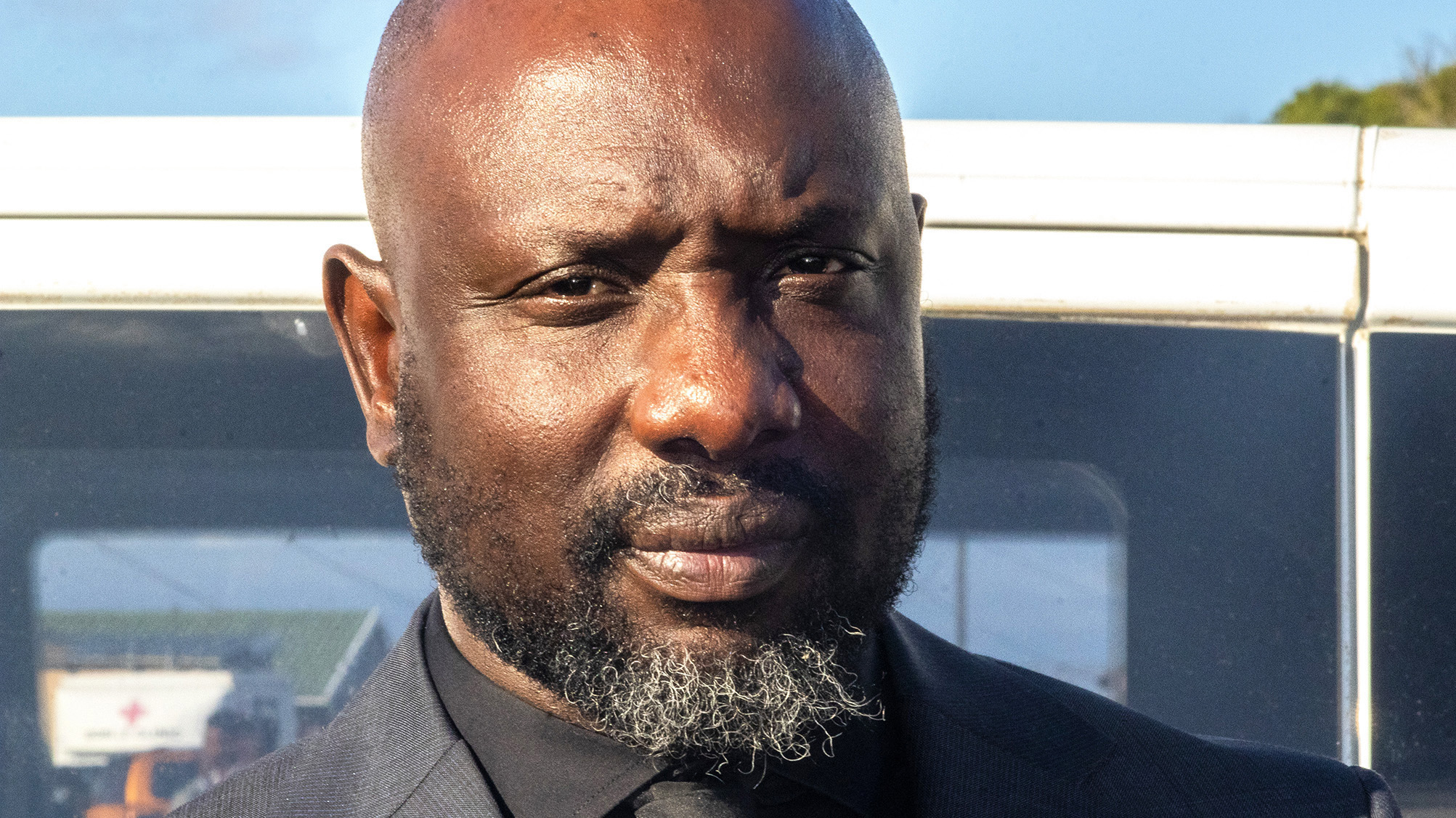ENYOBENI TRAGEDY
Survivor says some people brought alcohol from another shebeen to ‘tavern of death’
A survivor of the Enyobeni Tavern tragedy has told Daily Maverick that on the night 21 young people died after a ‘pens-down’ party at the popular drinking spot, some of her friends bought alcohol from another shebeen in the area. Forensic tests have shown that all those who died had methanol in their blood.
On the night that 21 young people died in Enyobeni Tavern, in Scenery Park, East London, one of the survivors saw her friends go to another shebeen in the area to buy drinks, which they then brought to Enyobeni.
And a young man who was at the tavern that night said they always bought the same drinks at Enyobeni, including a popular apple cider, flavoured beer and whisky. The survivor, who is below the legal drinking age, said they did not notice anything wrong with their drinks.
“It was the same beer we always drink and… have been drinking there,” he said.
The manager of the tavern has been summonsed to appear in court on charges of selling alcohol to minors. Two employees have been given the option of paying a fine.
On Wednesday, the police did not answer questions on whether the alcohol at Enyobeni Tavern had been tested by forensic experts.

A man removes the remaining alcohol from Enyobeni Tavern on 30 June 2022, after the forensic investigation had been completed. (Photo: Hoseya Jubase)
A few days after the deaths, tavern owner Vuyokazi Ndevu and an employee were seen removing crates of alcohol from the tavern. It appears the police gave them permission to do so.
A young woman who escaped unharmed on the night of the tragedy said some of the people at the party had brought their own alcohol.
“There is also another tavern close to Enyobeni Tavern and some were coming from that tavern with their alcohol, but the majority of us got our drinks at Enyobeni.”
Asanda Monelo, whose child, Aluncedo, died at the tavern said he bought beer at Enyobeni.
“There was no homemade alcohol we know of and if they are saying there is something wrong with the alcohol, the children must have bought it there,” Monelo said.
Twenty-one young people, the youngest aged 13, were found dead at the tavern on 26 June after a night of partying to celebrate the start of the winter holidays.

Inside Enyobeni Tavern in Scenery Park, East London, after the tragedy. (Photo: Hoseya Jubase)

Inside Enyobeni Tavern in Scenery Park, East London, on 30 June 2022. (Photo: Hoseya Jubase)
Those who died at the tavern were: Esinako Sanarhana, Sikelela Tshemese, Sinothando Mgangala, Thembinkosi Silwane, Azizipho Zilindile, Bhongolethu Ncandana, Aluncedo Monelo, Mbulelo Rangile, Nathi Ngqoza, Inathi Nkani, Asamkele Thukuthe, Lithemba Velaphi, Sandanathi Mahlakahlaka, Simamkele Sobetwa, Kungentando Nzima, Lilitha Methuko, Lungile Bekiso, Ovayo Mateyise, Inamandla Wexu, Simele Bolsiki and Oyena Ngoloyi.
Dr Litha Matiwane from the Eastern Cape Department of Health said at a press conference in East London on Tuesday that preliminary results obtained from a forensic laboratory in Cape Town had shown that all those who died, had methanol in their blood.
Methanol is a toxic alcohol used industrially as a solvent, pesticide and alternative fuel source.
In 2020, the World Health Organization warned against the ingestion of methanol as a cure for Covid-19 after fake information indicated that drinking hand sanitiser could kill the virus.
Globally, most methanol poisonings occur as a result of drinking beverages contaminated with the alcohol. The number of methanol poisonings spiked during the liquor ban in many countries following the outbreak of the coronavirus pandemic.
The US Centers for Disease Control and Prevention has noted cases where methanol was inhaled in certain industrial settings.
Serious health risks
Lucky Ntima from the National Liquor Traders Association has warned against the consumption of illicit alcohol.

The convener of the National Liquor Traders’ Association, Lucky Ntima, has warned consumers against drinking from previously opened bottles of alcohol or those with ‘suspicious’ packaging (Photo: Hoseya Jubase)
Ntima said counterfeit alcohol products often cost a fraction of the price of legal products and this contributes to higher rates of heavy drinking and poses serious health risks.
“The illicit alcohol trade, now worth about R20.5-billion, includes counterfeit products, smuggling and the use of authentic packaging refilled with cheaper alcohol, sometimes including methanol and other harmful chemicals. The trade grew substantially during the alcohol bans when legal products were not allowed to be sold, resulting in the expansion of criminal networks that are now entrenched.
“While no conclusive findings have been made as yet, methanol, methylated spirits and other potentially lethal substances are known to be used in the production of illicit alcohol, pointing to the dangers of consuming products that have not been purchased from a recognised supplier.
“We appeal to members of the public to be extremely wary of drinking any alcoholic product that is supplied in suspicious packaging or that has been opened before they receive it. We also call on liquor traders to buy their products only from recognised official suppliers so that we eliminate the risk of illicit alcohol making its way into the hands of consumers.”
Ntima said that research conducted by Euromonitor in 2020 following the alcohol bans imposed during the Covid-19 lockdowns showed that the illicit alcohol trade now accounts for 12% of the alcohol market by volume, and had almost doubled over the past eight years. DM/MC




















 Become an Insider
Become an Insider
“The trade grew substantially during the alcohol bans when legal products were not allowed to be sold, resulting in the expansion of criminal networks that are now entrenched” . . .
What a surprise! The USA’s experiment with Prohibition led directly to the Mafia taking over from the Irish as criminal leaders. Why did the ANC think that banning alcohol sales during COVID-19 would be any different? “The illicit alcohol trade [is] now worth about R20.5-billion”